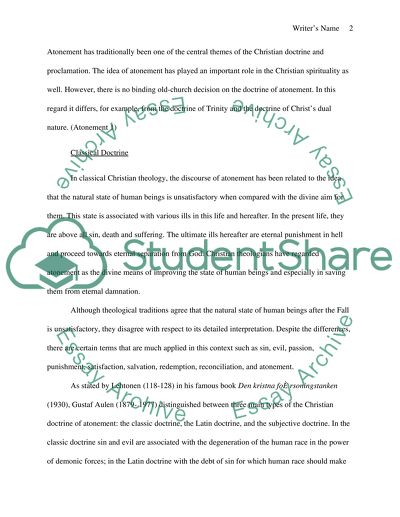Cite this document
(“Atonement in the views of Anselm and Abelard Admission/Application Essay”, n.d.)
Atonement in the views of Anselm and Abelard Admission/Application Essay. Retrieved from https://studentshare.org/miscellaneous/1557883-atonement-in-the-views-of-anselm-and-abelard
Atonement in the views of Anselm and Abelard Admission/Application Essay. Retrieved from https://studentshare.org/miscellaneous/1557883-atonement-in-the-views-of-anselm-and-abelard
(Atonement in the Views of Anselm and Abelard Admission/Application Essay)
Atonement in the Views of Anselm and Abelard Admission/Application Essay. https://studentshare.org/miscellaneous/1557883-atonement-in-the-views-of-anselm-and-abelard.
Atonement in the Views of Anselm and Abelard Admission/Application Essay. https://studentshare.org/miscellaneous/1557883-atonement-in-the-views-of-anselm-and-abelard.
“Atonement in the Views of Anselm and Abelard Admission/Application Essay”, n.d. https://studentshare.org/miscellaneous/1557883-atonement-in-the-views-of-anselm-and-abelard.


